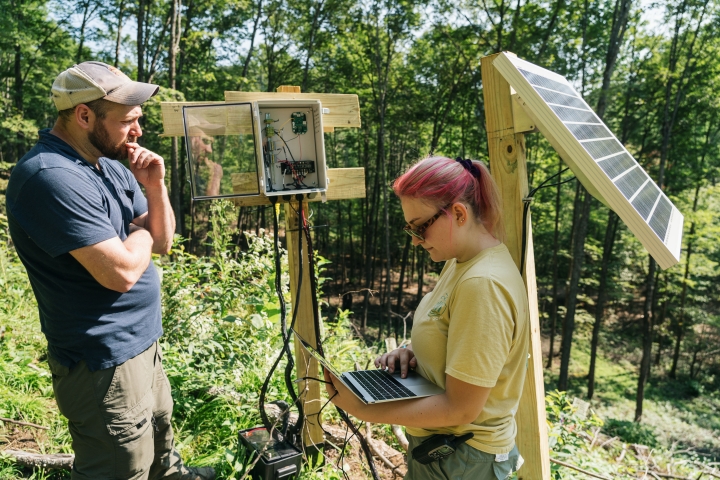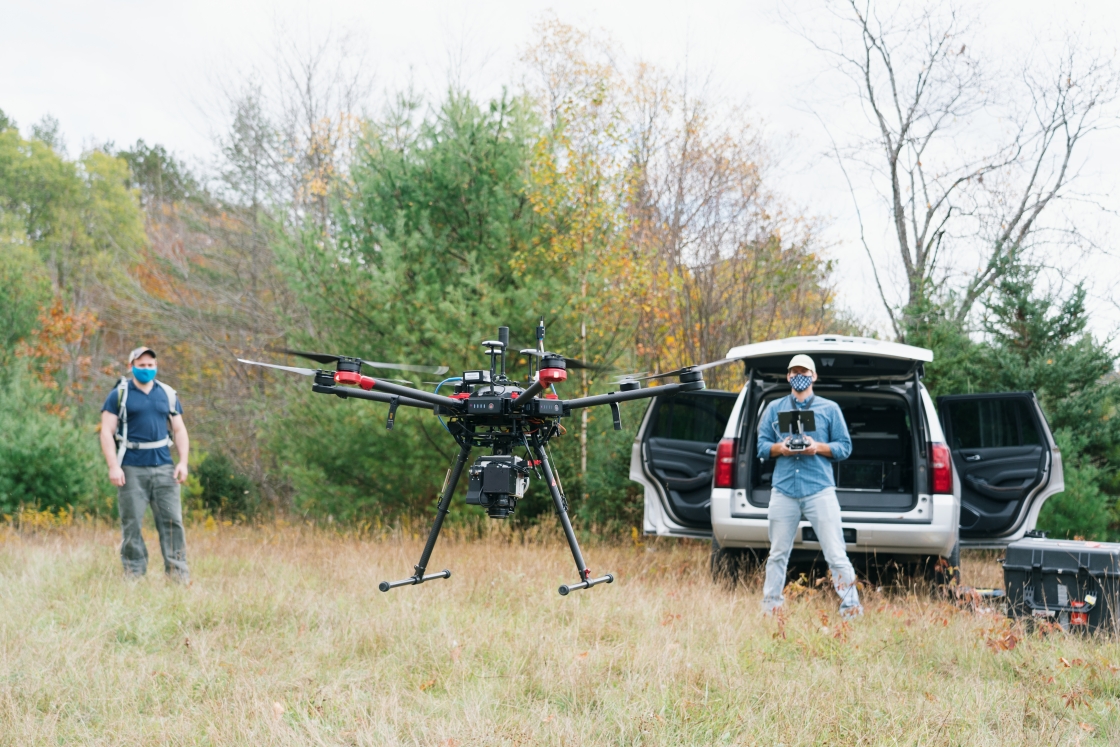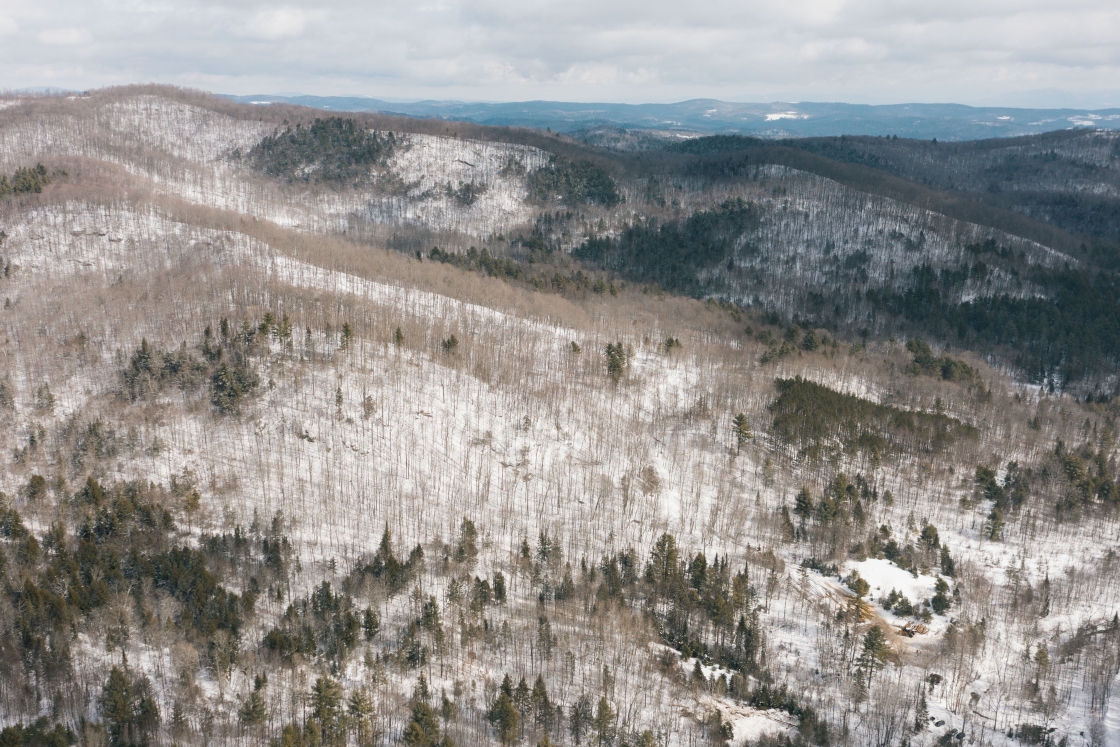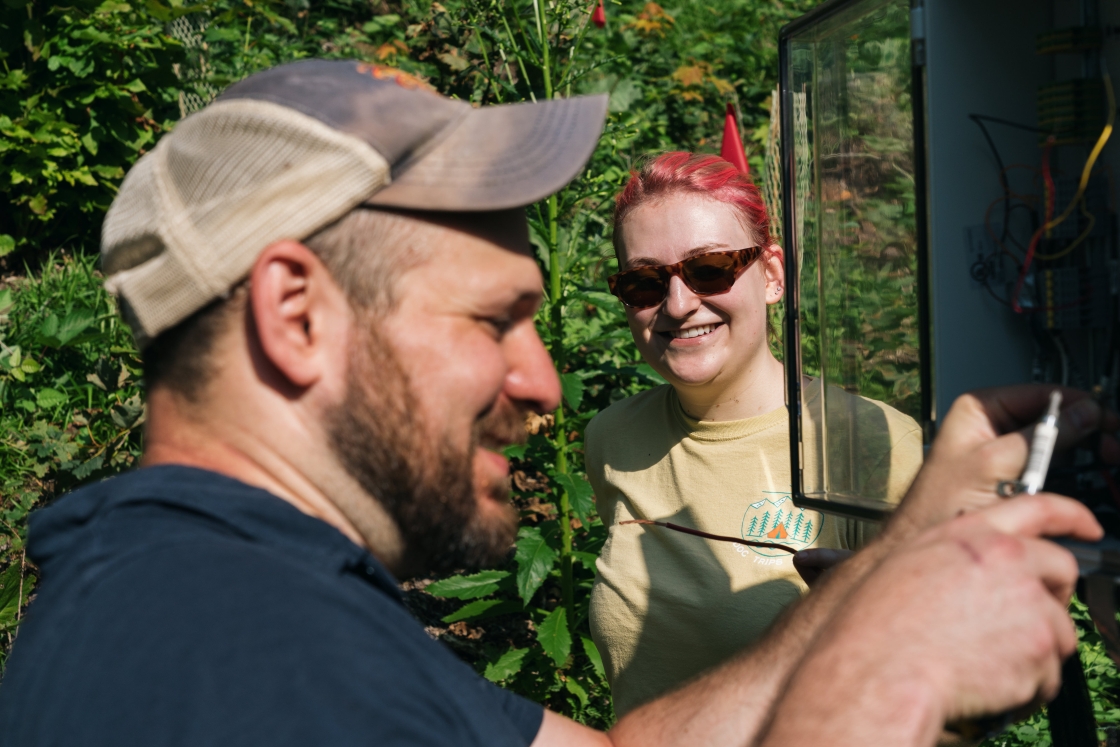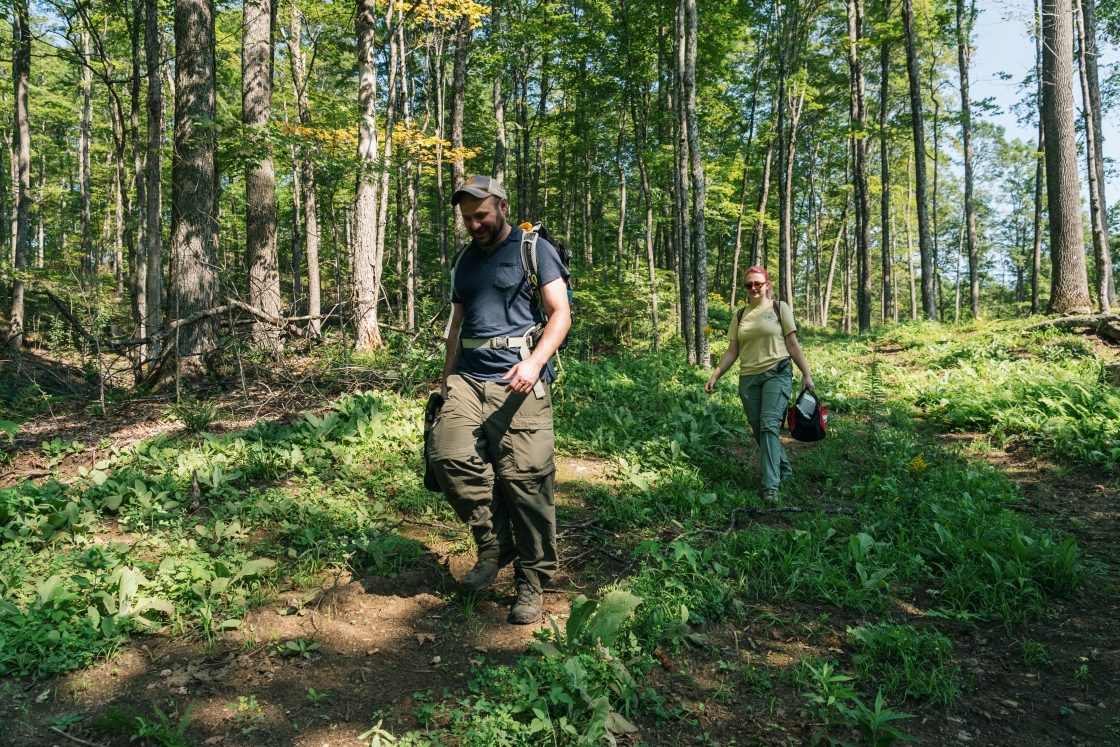Emma Hazard ’22 never imagined she’d spend a good bit of her college career wearing mosquito netting and toting a backpack full of batteries, cables, and tools through the Vermont woods.
While some researchers love to put on hiking boots and bug spray, she prefers the technical aspects, such as coding, says Hazard, who is part of a team racing to study an ash-heavy forest on Dartmouth-owned property in Corinth, Vt. Nonetheless, “it’s always really fun to be out there, and definitely worthwhile.”
Hazard’s work as a research assistant takes her to the computer, the workbench, and the woodland itself, which is under threat from the emerald ash borer, an invasive beetle. Along the way, the engineering and studio art major says she is developing skills she wouldn’t otherwise acquire, including learning several new programming languages and building an app to collect, transmit, and filter environmental data from remote areas in real time.
Being able to access that information is a boon for field studies, says project leader David Lutz, a research assistant professor and lecturer in environmental studies. “It expands our understanding of different types of ecosystems without any sort of bias towards proximity to more populated areas.”
Getting Ahead of an Invasion
With the ash trees under threat—the wood-boring insect has been found just five miles from the Corinth property—the 700-acre site offers a rare opportunity to study the trees and surrounding habitat while they’re still intact, says Lutz, who likens the ash to the American chestnut, which was nearly eradicated by blight. “While there have been studies of invasions in the past, getting this far ahead of an invasive species and planning an experimental design well in advance is very novel.”
Lutz and his team are exploring the ecological role white ash plays in forests and testing strategies for minimizing the impact of the emerald ash borer. The work has required the expertise of research partners from a variety of institutions, including Cornell Lab of Ornithology, the University of Florida, the University of Vermont, and the U.S. Forest Service. Kevin Evans, Dartmouth’s director of woodland operations, is also involved.
“Ecosystems are complex places, and as a research professor, I know that casting a wide net is the key to success,” says Lutz. “To have a full understanding of how to solve environmental problems or understand the natural world, one really has to consider a lot of different fields.”
‘Being Stuck and Finding Solutions’
Their research findings could inform everything from forest management practices to fire condition monitoring to climate change science, says Lutz.
Hazard’s contributions include helping to program, install, and maintain the network of sensors on the Corinth property, building on previous efforts by Lutz and others.
It’s complex work that requires an understanding of engineering, computing, environmental science, and ecology, which might have scared off any number of more seasoned researchers, says Lutz. “I can’t tell you how many problems we run into with the coding. You have to be comfortable being stuck and finding solutions.”
‘These Things I’ve Learned’
Hazard appreciates the steady stream of challenges Lutz, her mentor, offers.
“He gives me lots of different projects, things that interest me,” says Hazard, who started working with Lutz on a related project as a first-year student through the Women in Science Project, and continued as an Undergraduate Advising and Research scholar and Neukom Scholar. “He is adamant about student researchers taking an active part in research.”
She isn’t sure what sort of work she’ll do after graduation, but, Hazard says, whatever field she chooses, her experiences will be valuable.
From farming to industry, “the application of these little microprocessors is so vast,” and a lot of jobs require experience with different computer languages, she says. “They’re definitely helpful, these things I’ve learned.”
